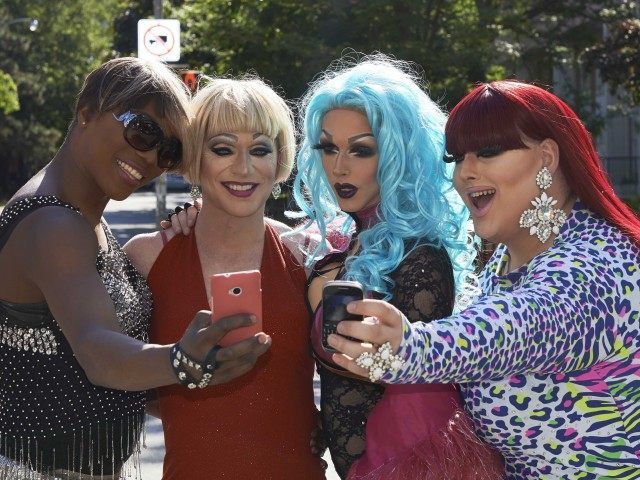A Pride event in Scotland has banned drag queens because they might offend trans-gender people. Organisers of the show, established to celebrate diversity and tolerance, say the presence of drag queens could make the trans-gendered feel “uncomfortable.”
Drag performances have historically been a feature of almost all Pride events, however Free Pride Scotland, which was set up as an “anti-commercialist” rival of Glasgow’s main Pride event, appears to be the first to take the decision to exclude them.
The organization claims to create “a safe space for all people within the LGBTQIA+ community,” and not to “discriminate.” However, they say, “the needs of the most marginalised groups within our community come first. After much discussion, the trans and non-binary caucus decided not to have drag acts perform at the event,” wrote Free Pride Scotland on their blog. They continued:
“This does not mean that people of any gender can’t wear what they want to the event, we simply won’t be having any self-described drag acts perform at our Free Pride Event on the 22nd August. We hope people can understand and support our decision. However we feel it important to fully explain why we came to this decision.
“The decision was taken by trans-gender individuals who were uncomfortable with having drag performances at the event. It was felt that it would make some of those who were transgender or questioning their gender uncomfortable.”
The National Union of Students (NUS) led the way in March by voting to enforce a “zero tolerance” approach to drag and cross-dressing in all student union events across the country.
“Transphobic fancy dress should be met with the same disdain with which we meet other prejudiced or appropriative costumes,” they said in a motion before adding: “Conference resolves to issue a statement condemning the use of ‘cross-dressing’ as a mode of fancy dress.
“Conference resolves to amend the NUS Zero Tolerance Statement policy to cover all NUS events and conferences; and to encourage Unions to ban clubs and societies from holding events which permit or encourage (cisgender) members to use ‘cross-dressing’ as a mode of fancy dress.”
The clash between the two somewhat similar groups can seem bizarre to those not versed in the politically correct language of LGBT politics, but it exposed an interesting crack in left-wing ideology.
Drag and cross-dressing is described as a “hobby,” or an “art form.” Gay and straight men have dressed up as women for hundreds of years, but crucially, without ever actually claiming to be women. Drag queens “keep their male privilege,” therefore, and so trans-activists view their cross dressing rivals as coming somewhat lower down on the victim scale.
Trans-activists frame their hostility to drag queens as a concern that conflation between the two groups compromises “the validity of their own identity” and so contributes to their “oppression.” The truth, however, is that the existence of drag queens and cross dressers is quite inconvenient to the trans-ideology and the “gender theory” they favour, born of postmodern leftism.
Anyone who rejects “gender norms,” such as drag queens, is in their view gender-neutral or pangender or some other fandangled new term, rather than just a bloke who likes to put on a dress.
Men are born in the wrong body, they say, but critics point to cross-dressing men, who also “challenge gender norm,” as evidence that many men do it for sexual arousal and/or mere fun, and that there is no reason to pretend they are not in fact men, and sometimes indulge them with dangerous surgery.

COMMENTS
Please let us know if you're having issues with commenting.